FST Lisboa: power, control, and precision – Electrical Engineering on track
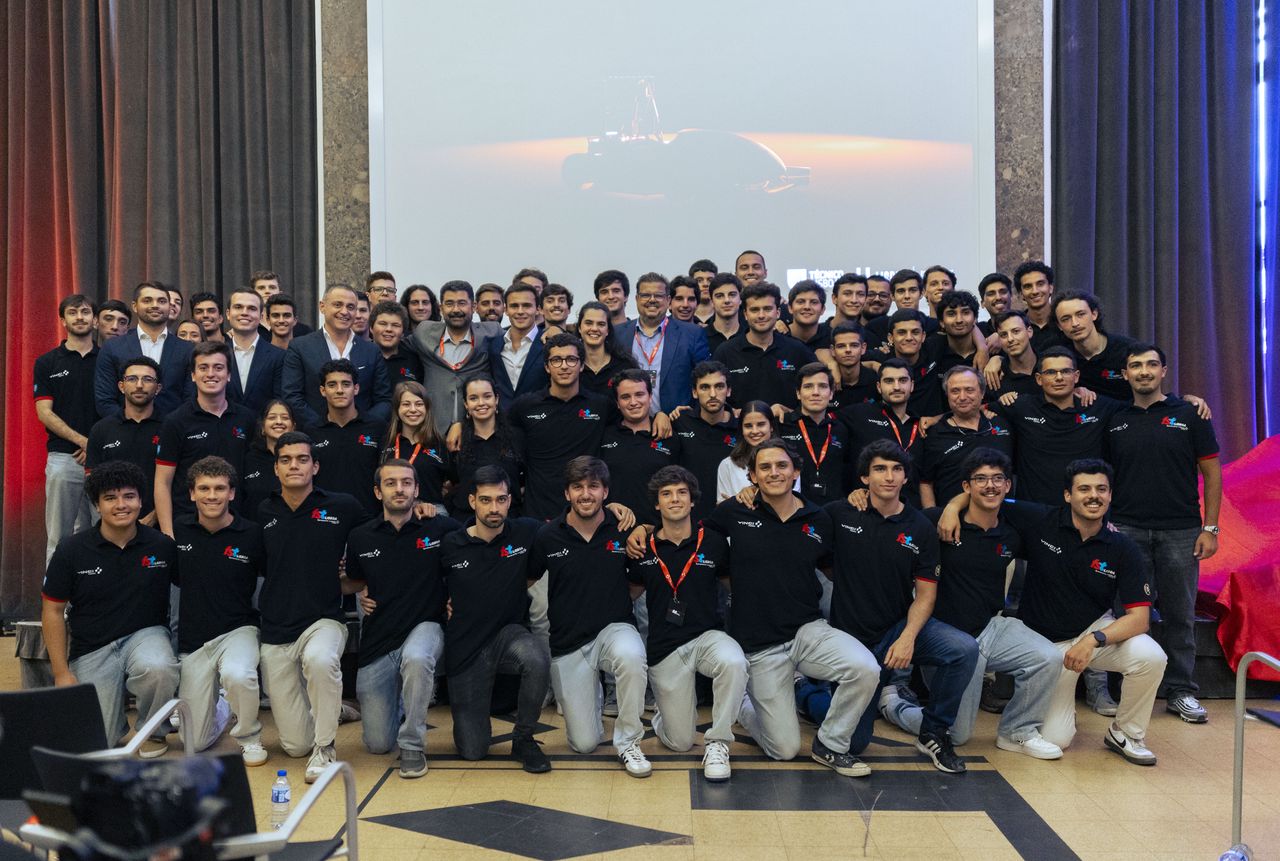
The Formula Student team of the Instituto Superior Técnico, University of Lisbon, also known as FST Lisboa, is a student-led group dedicated to building cars that compete annually in international Formula Student competitions. In an interview with DEEC, Miguel Velo, Henrique Póvoa, Afonso de Mello, and Eduardo Batista—members of the powertrain department and Electrical and Computer Engineering students—shared insights into the project and highlighted the key role Electrical and Computer Engineering plays within it.
Being part of the team allowed me to gain skills that can only be acquired in the best branches of electrical engineering, and the opportunity to take part in a truly unique project.
Henrique Póvoa, LEEC student and member of FST Lisboa’s powertrain department
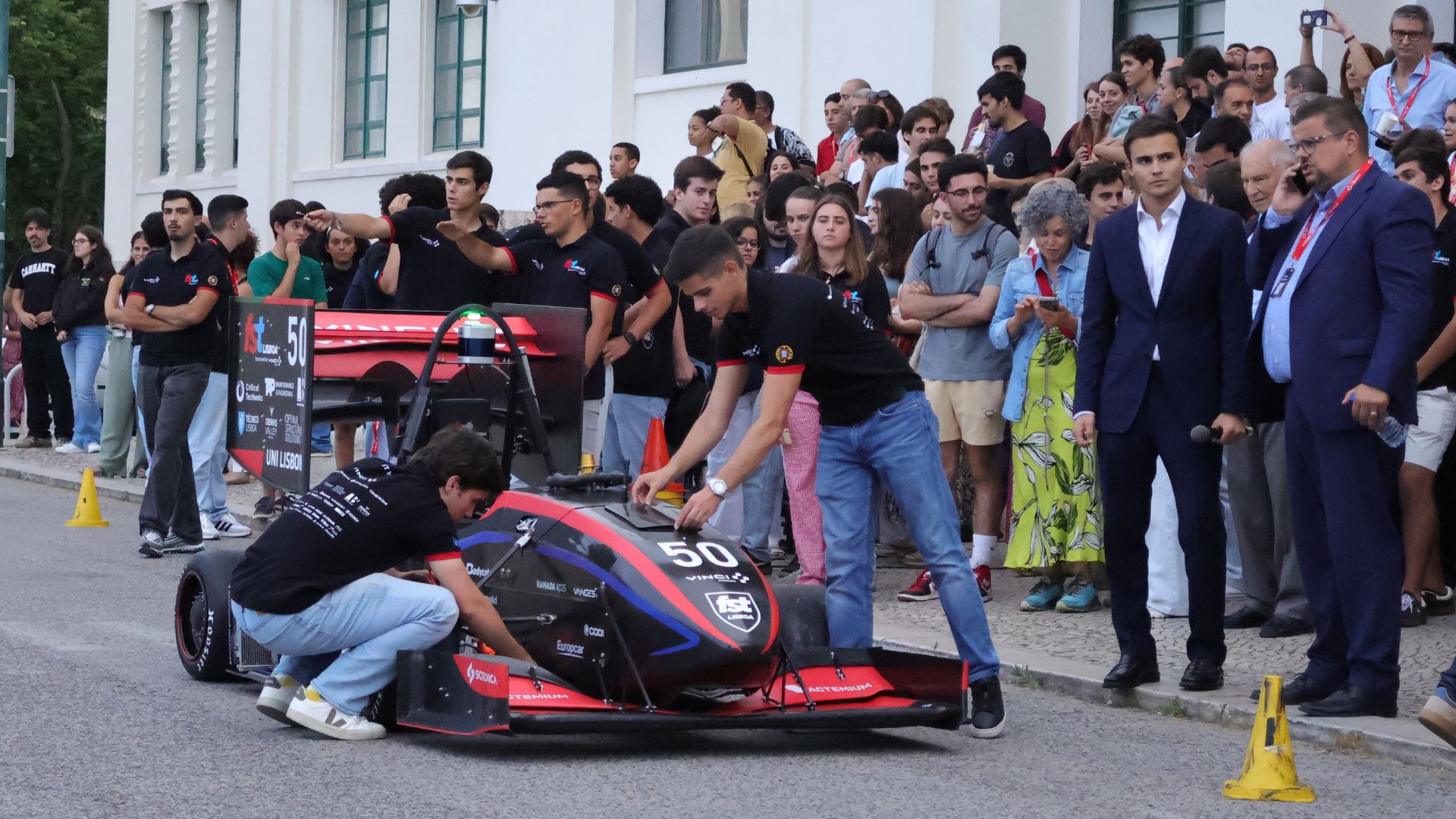
To date, the team has built 13 prototypes from scratch and taken their vehicles to tracks across several countries including Portugal, Spain, Germany, Austria, and Italy, among others. While the first prototypes were combustion-powered and manually driven, the current cars now compete in the electric vehicle category and include an autonomous driving system alongside manual operation.
Teams are evaluated not only based on the vehicle’s top speed but also on overall performance and the project’s financial planning. As a result, competitions include both dynamic and static events.
In dynamic events, the team presents the vehicle’s straight-line acceleration (acceleration), path control including tight turns (autocross), lateral grip (skid pad), energy efficiency (efficiency), start-stop endurance (endurance), and driverless performance (trackdrive). In the latter, the car navigates autonomously using a LiDAR sensor, which detects color-coded cones indicating the course.
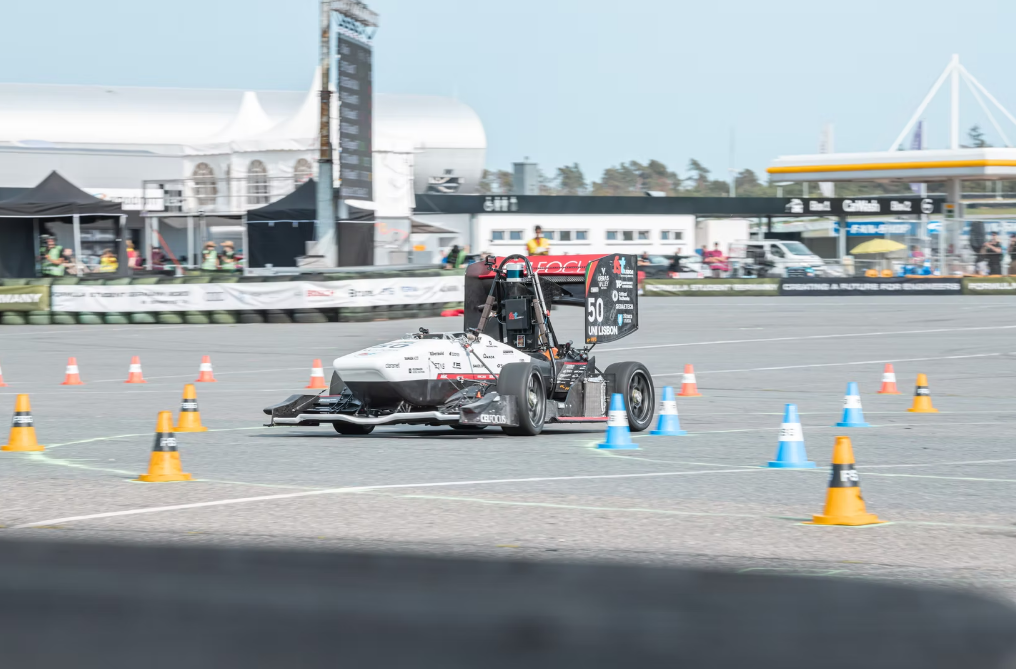
In static events, teams are assessed on their technical understanding of the prototype’s systems, along with cost analysis and business planning—simulating a real-world company environment.
In the most recent competition year, 2024, the team excelled during the Portuguese stage with the FST 13, achieving 1st place in both the autonomous and electric vehicle categories.
Throughout the entire development process, students are fully responsible for each prototype—selecting materials for every vehicle part and integrating all the electronic systems. For this reason, the team is divided into 8 departments, 3 of which are directly linked to Electrical and Computer Engineering: powertrain, electronics and software, and autonomous systems. “The powertrain department is responsible for the three main power subsystems: battery, inverters, and motor,” explains Miguel Velo. This department manages the vehicle’s energy system and cooling mechanisms, including high-voltage systems. The second department develops the software and low-voltage components, including safety systems and sensor integration. Finally, the autonomous systems department designs and implements ROS/C++-based software for autonomous driving.
Dentro dos sistemas autónomos lidamos muito com controlo e algoritmos, temos de desenvolver todo In the autonomous systems team, we work a lot with control and algorithms — we have to develop all the software that allows the car to navigate a track.
Miguel Velo, powertrain department director, FST Lisboa
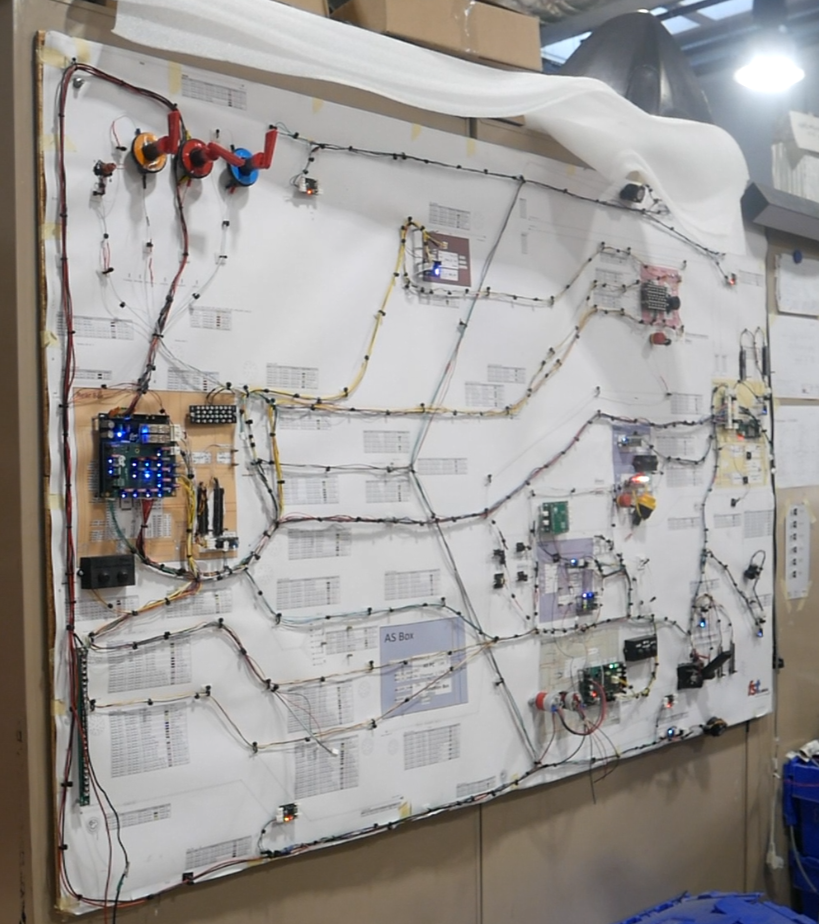
By applying the knowledge gained during their studies, Afonso, Eduardo, and Henrique highlight that being part of the team is synonymous with applying engineering to real-world problems in a collaborative environment.
Afonso de Mello, a Bachelor’s student in Electrical and Computer Engineering, joined the team to develop skills beyond the classroom: “this synergy between theory and practice not only consolidated what I had learned but also proved my ability to work on technically complex and constantly evolving projects,” he states, also emphasizing the high-quality training provided by FST Lisboa. He notes that participation in this 25-year-old project adds strong value to any student’s résumé, as it develops tools highly relevant to the job market: “it was a defining experience, and I strongly recommend it to anyone looking to take a decisive step in their engineering journey.”
At FST, I had an experience that took my engineering skills to another level. I learned how to work efficiently, apply theory, and manage my time like a true professional.
Afonso de Mello, LEEC student and powertrain team member
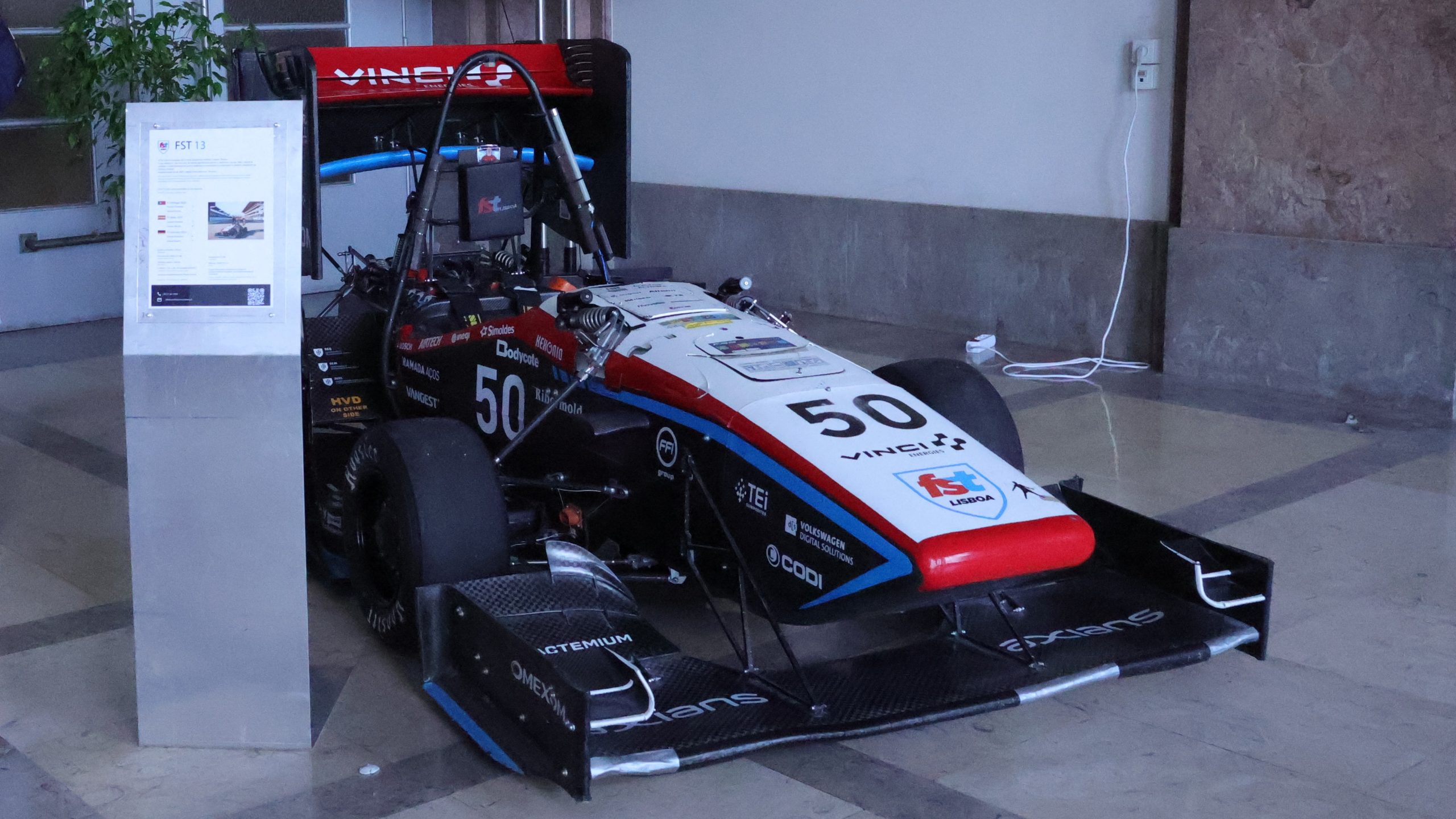
Henrique Póvoa foi, no início do ano, responsável por obter os resultados de performance do sistema de Henrique Póvoa was initially responsible for performance testing of the Power Limiter system, which controls the car’s maximum power output. He later moved on to the study of the vehicle’s motors and emphasizes: “this meant applying theoretical knowledge in practice.” “It allowed me to deepen my understanding of electrical systems and gain experience in dealing with real-world engineering challenges,” he adds. He also highlights that joining the team gives students the opportunity to compete annually and interact with other top-tier universities internationally.
I decided to join the powertrain department, where we work on the car’s high-voltage systems (…) Since joining the team, I’ve learned a lot about how these systems work and their complexity.
Eduardo Batista, LEEC student and powertrain department member
Like his teammates, Eduardo Batista shares a passion for energy systems and joined FST Lisboa to boost his innovation mindset through a course-related but hands-on activity. “I started by testing battery cells at different temperatures and pressures to extract parameters for accurate battery modeling,” he says. He also worked with inverters and is now responsible for the vehicle’s wiring systems, which connect its various subsystems.
Reflecting the dedication and effort of all members, FST Lisboa unveiled its latest prototype, FST 14, on June 18. The car is set to compete in Portugal, Spain, and Germany this summer.
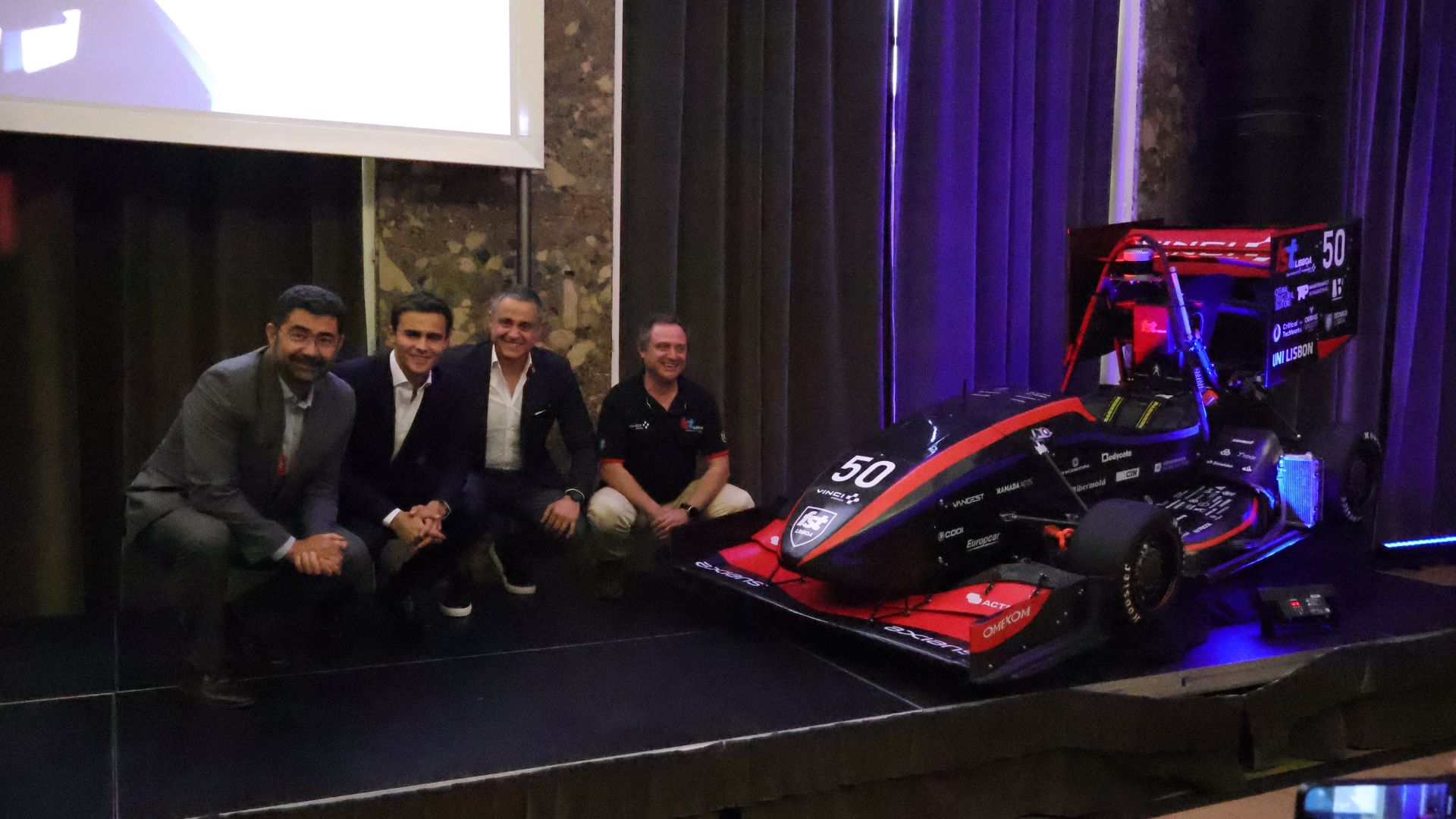
Cover photo: Técnico
Photos: DEEC and FST Lisboa
